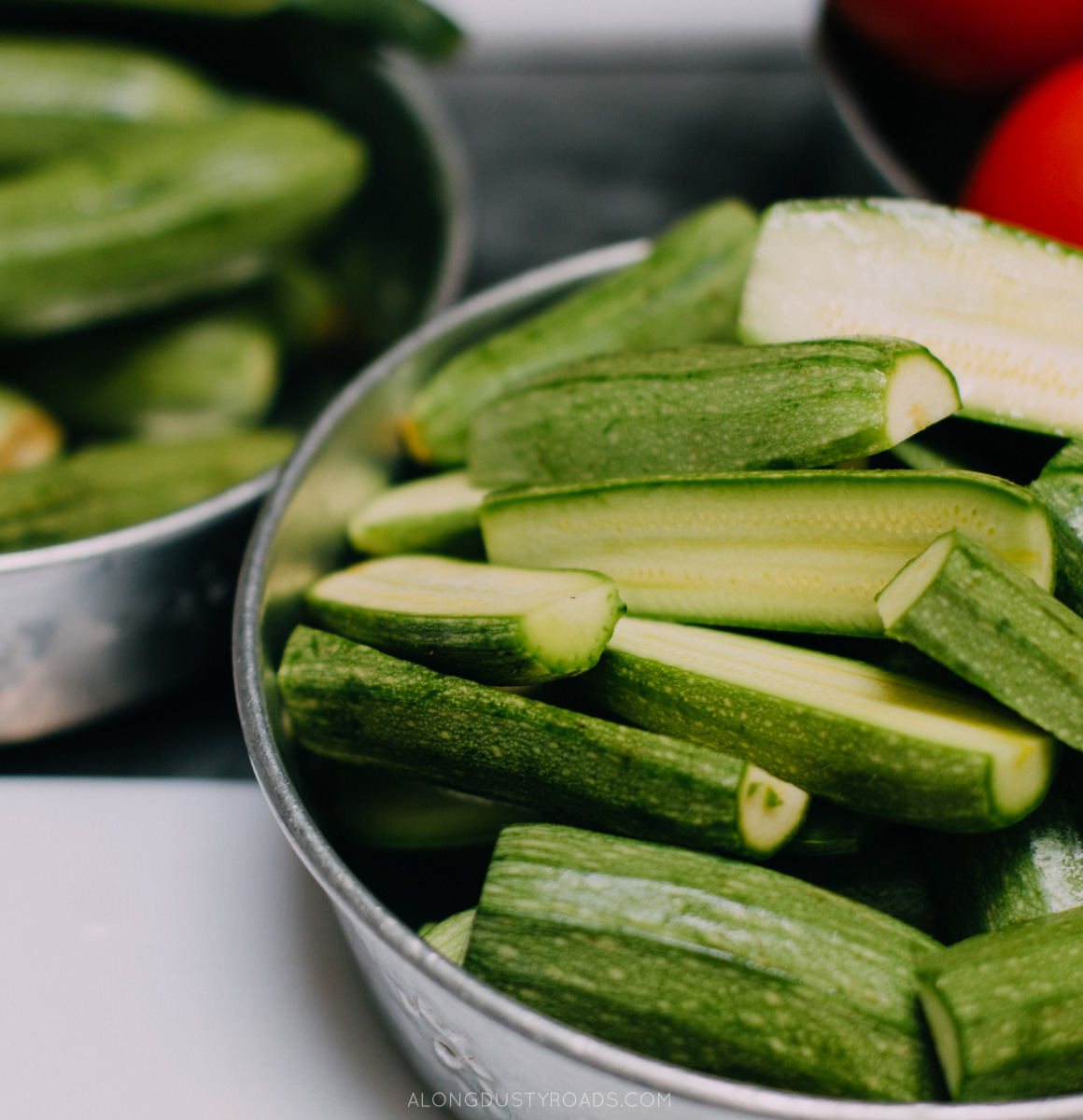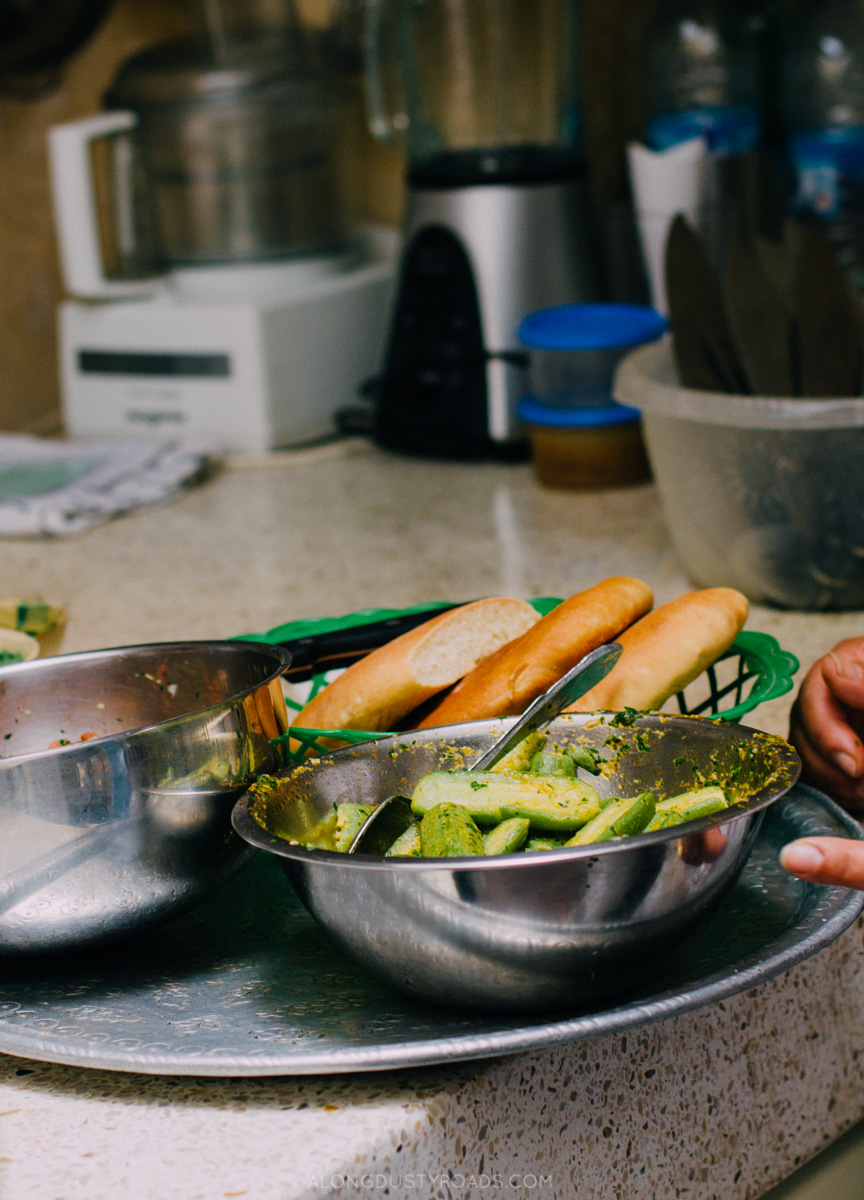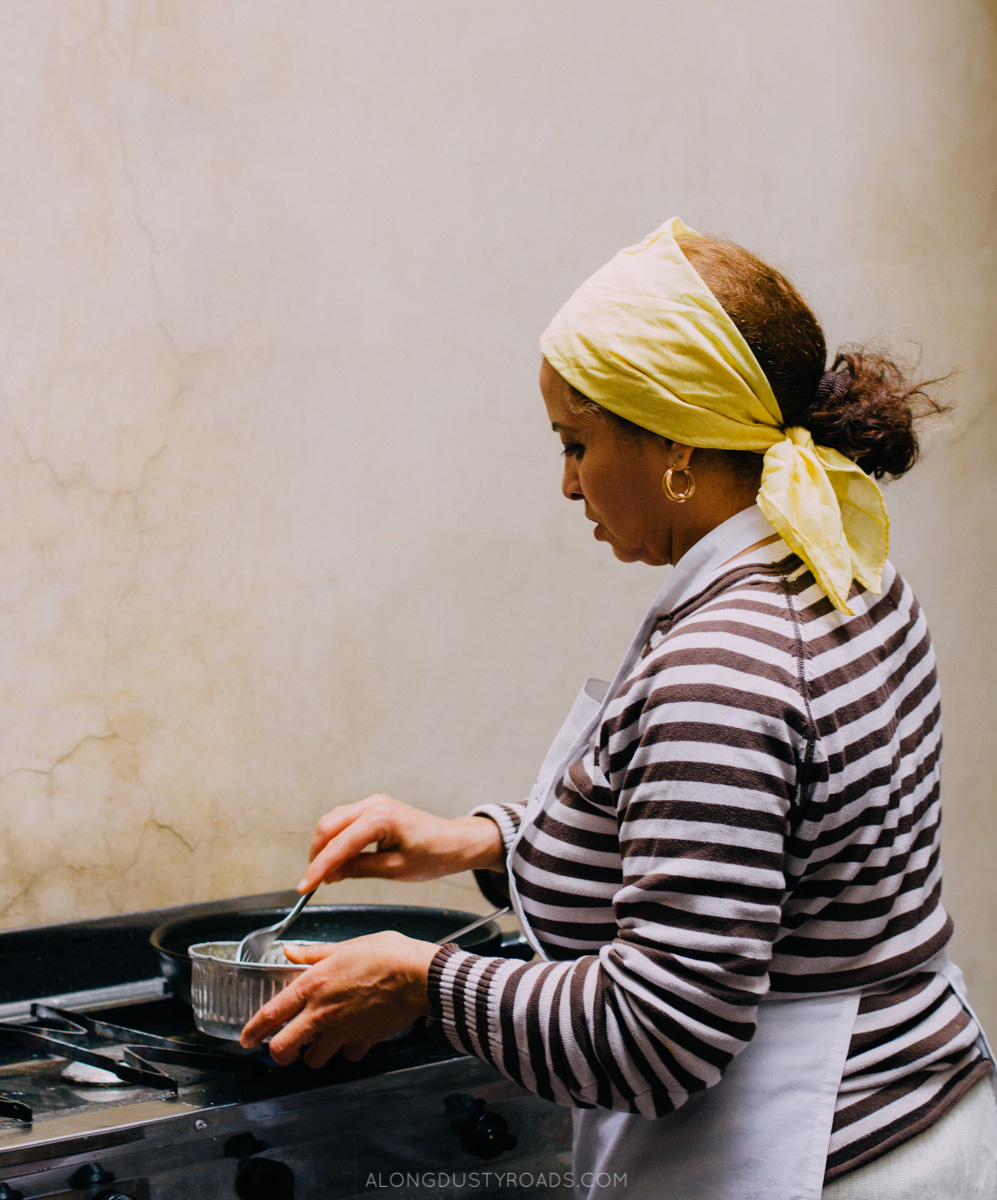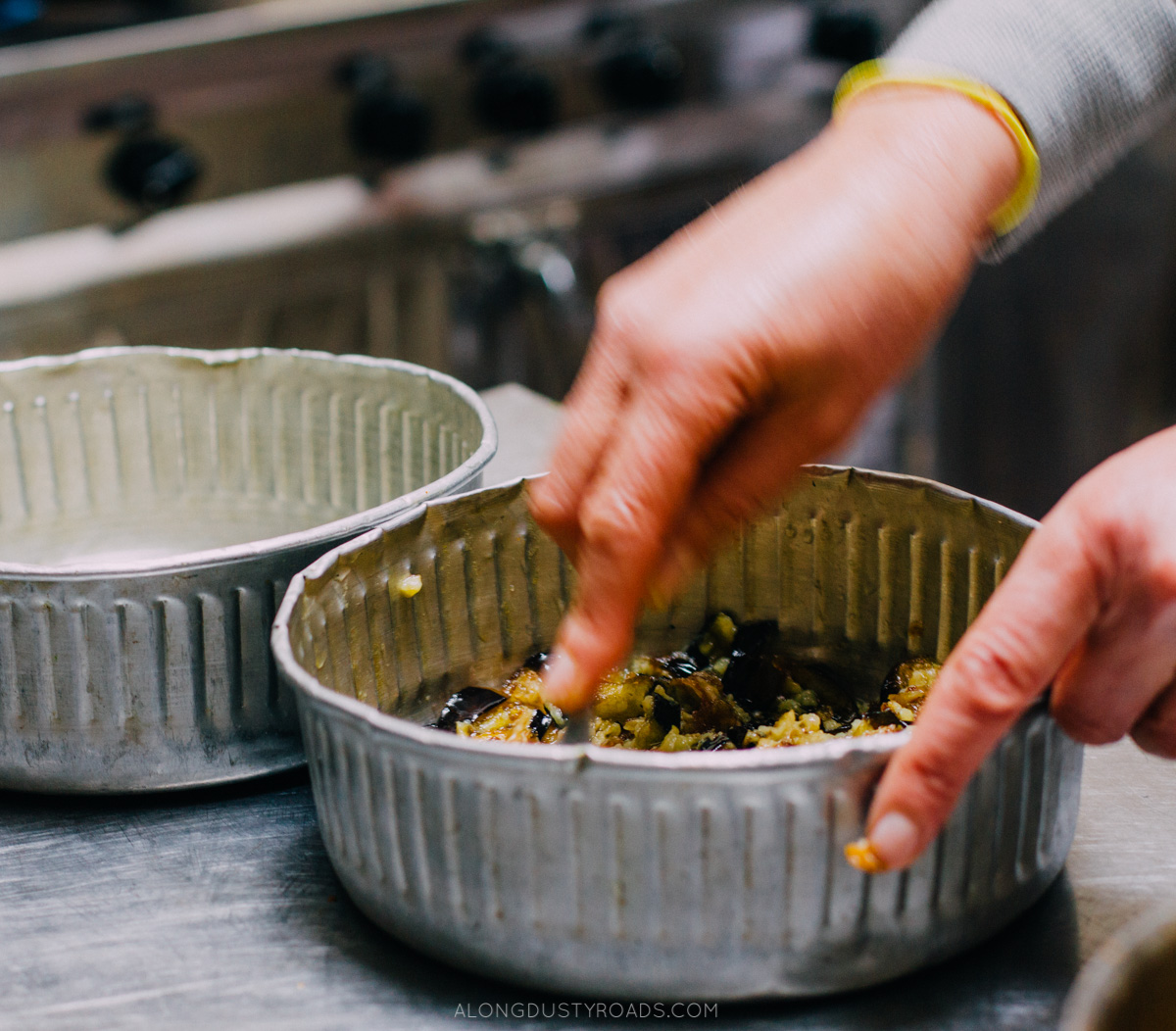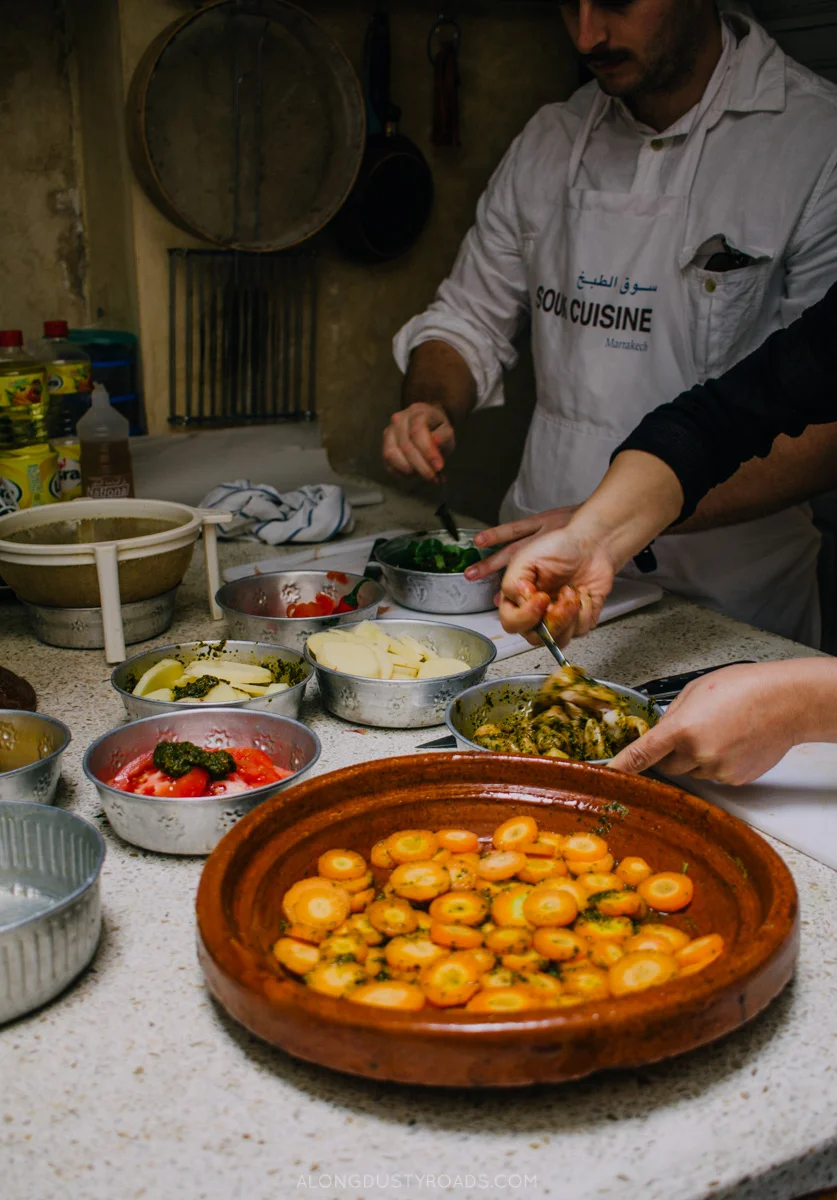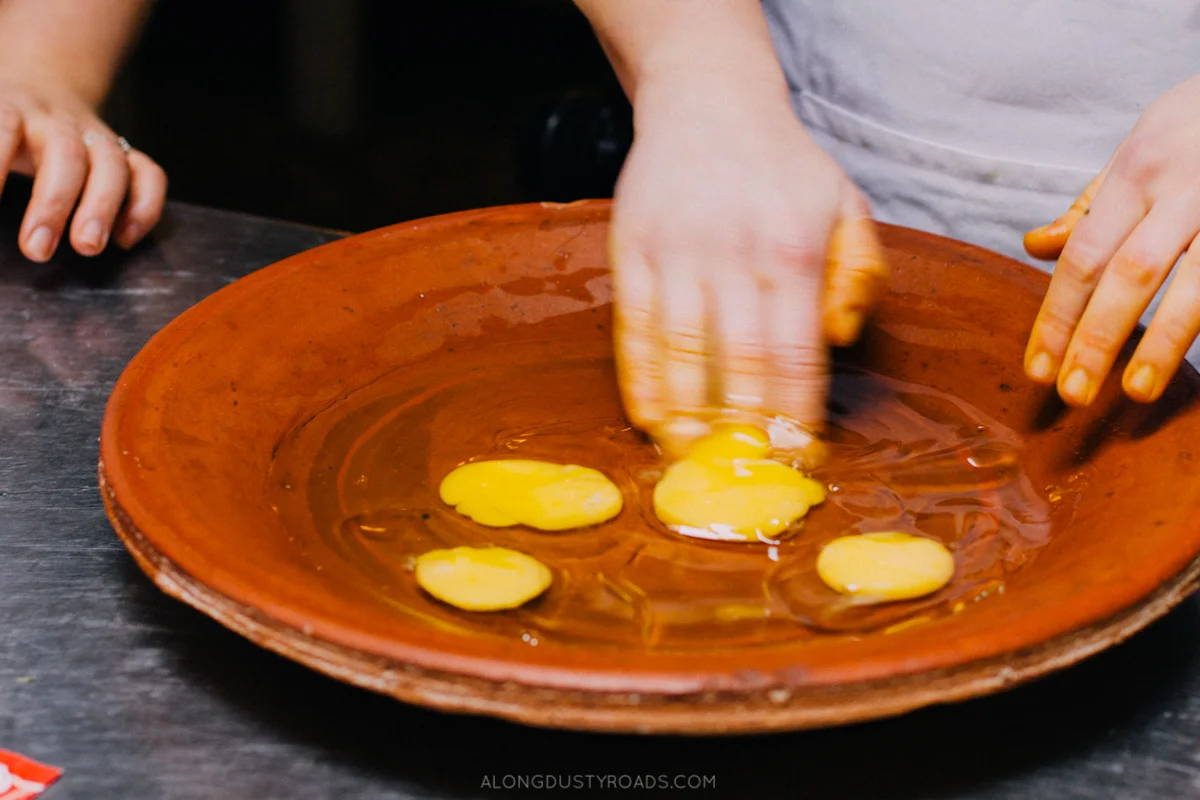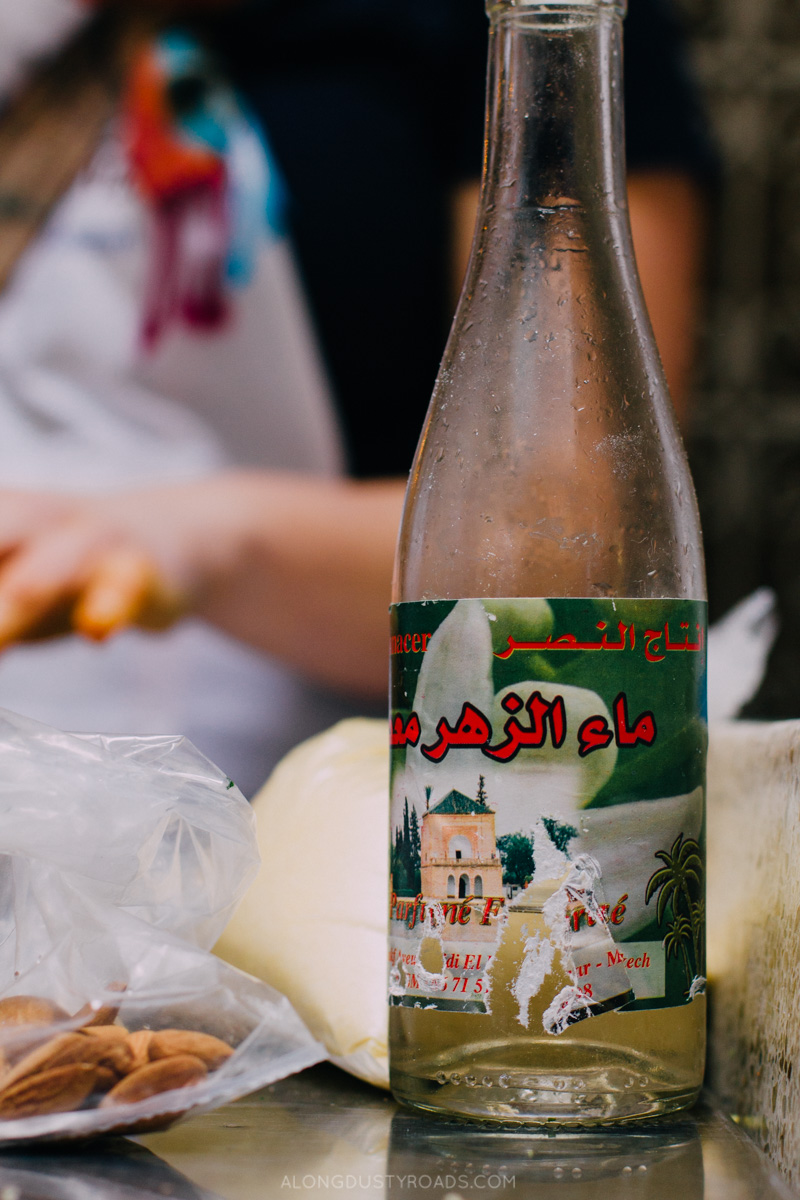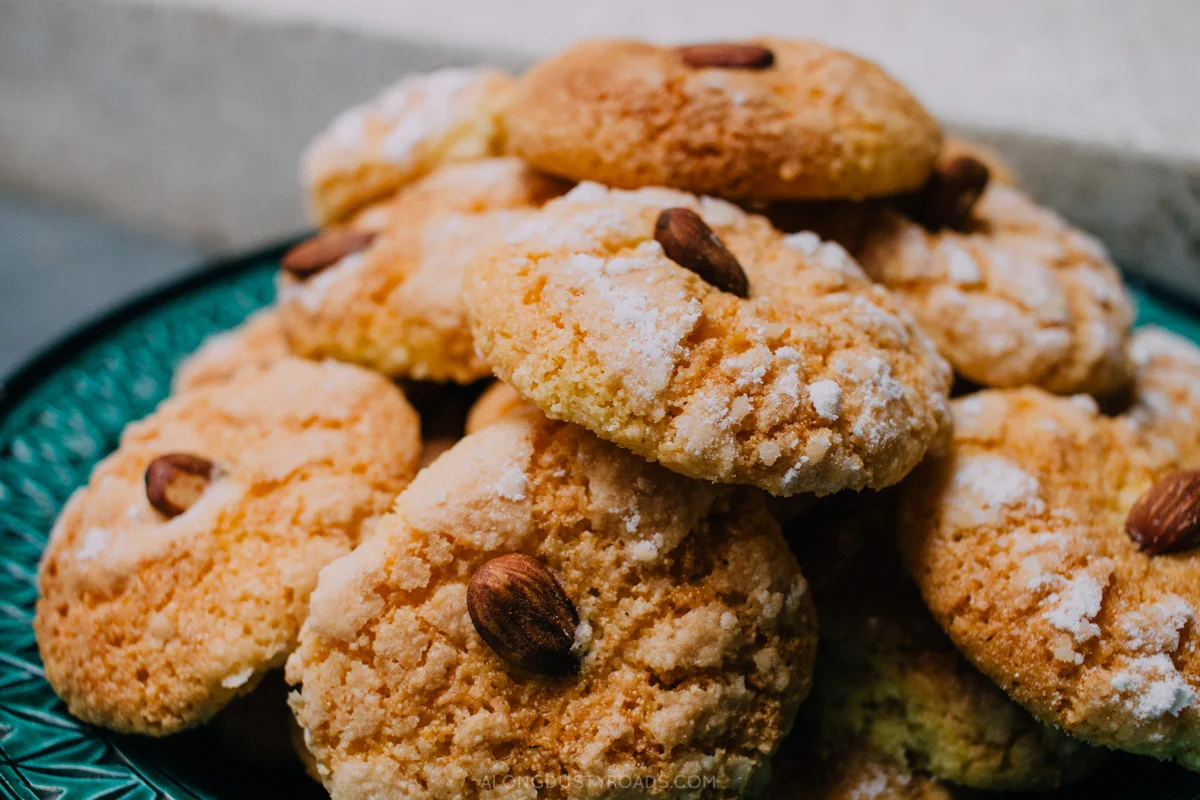“When the stomach gets full, it tells the head to sing.”
Saffron from Talaouine; mint and olives from Meknes; oranges and lemons from Fes.
Morocco is a country bursting with fresh ingredients and delicious flavours. And yet, unless you choose to eat at the fanciest restaurants or will happily munch on meat, eating out in Morocco can be a little, well, dull.
Veggie couscous, pizza, pasta and the often delicious but frustratingly repetitive vegetarian tagine. We knew that there was a lot more to this country's cuisine but we just didn't know how to find it. Taking a cooking class in Marrakech turned out to be the perfect solution - and Souk Cuisine, the perfect class.
Run by Gemma, a wonderful Dutch lady who now calls Morocco home, the class offers not only the opportunity to learn how to cook authentic local dishes, but a chance to source the ingredients themselves - with all classes beginning with a shopping list in that most Moroccan of environments, the souks.
Here, amongst real Moroccans we sought out perfectly ripe vegetables, bartered over the price of tomatoes, learnt a little about spices and potions from an enigmatic apothecarist and sampled small treats from stall owners that greet Gemma's guests daily. By taking the class outside the confines of a regular kitchen, the experience provides an insight into not only the traditional cooking practices, but also the day-to-day workings and rhyhtms of Moroccan society - and ensures this foreign owned venture gives back to the city from which it sprang.
We were a small class that day, our three main dishes and three side salads providing more than enough work for our clumsy hands. Chopping tomatoes it seems is an imperfect science, and not one either of us ever really mastered. Thankfully, Miriam, Sabah and Khadija - three constantly chattering and chortling local Moroccan matriarchs - were on hand to assist us and, with broken French and friendly smiles, we became better with our blades and more confident with our fingers. Moroccan food it seems is not only eaten, but also prepared best with hands!
There are few countries we have visited, where the food is so inextricably linked with its history, and a three course dinner can mean enjoying meals influenced by 2000 year old cooking methods and finished with pastries from a country many, many worlds away.
You see, unlike a lot of places, where dishes can be traced back to a single influence, over hundreds of years, Moroccan cuisine has several, beginning with the country's oldest inhabitants, the Berbers. This proud race, still very much a part of Moroccan society, indelibly left their mark with the creation of the tagine - yet, the ingredients that are now most commonly found within the conical clay cooking ware arrived much later.
READ NEXT | 13 WONDERFUL THINGS TO DO IN MARRAKECH
Spices, nuts and dried fruit brought over by the Arabs in the 7th century; the Moors and their Jewish counterparts are the reason for the heavy Mediterranean influence (a bowl of olives are almost compulsory upon every table for breakfast, lunch and dinner) and the preserved lemons that are so integral to traditional cooking. The reign of the Ottoman empire introduced grilled meats and hot-stone barbecues, whilst the French are responsible for the fresh pastries and café culture so evident in modern Morocco.
It is not hyperbole to state that every dish here has a story that extends back many hundreds of years.
In the open-air kitchen of Gemma's beautifully refurbished riad, vegetables boiled on the stove, and a small tagine simmered. However, as is common across the country, the bulk of the actual cooking happened away from the class. It seems that whilst these riads are designed to sleep many generations of the entire family, they simply cannot accommodate the cooking of large meal. Instead, the heating is done in the large oven of the local bakery, where a fire is kept alive throughout the day.
We had passed several of these heat and smoke-filled places with curiosity the previous afternoon when navigating the medina's labryinthical alleyways, but it was a Marrakech cooking class which allowed us an opportunity to fully understand their role and importance.
Cooking in the UK is such a solitary practice, tempered by the odd Sunday roast or boozy dinner party. In Morocco, it extends into the community.
Traditional sweet carrot, courgette and Moroccan salad, and a delicious Zaahlouk. Tagines of sardine, fish and preserved lemon, and baked chicken.
Fresh parsley, and fragrant coriander. Cumin, paprika, chili and tumeric; spices delicately punctuating dishes, without overpowering them. And garlic, a lot of garlic. Here, in the open air kitchen, a beautiful breeze carried the delightful aromas of Moroccan cuisine upward.
Dinner was served.
As the table was set, and a Moroccan wine chilled, Andrew was responsible for retrieving our freshly baked biscuits from the local oven. Diving between stalls, bicycles and meandering tourists, he slowly wound his way back to the riad, where somebody was waiting. A little girl, all bright eyes and rosy cheeks, shyly beamed up at us.
"Est-ce que je peux avoir un biscuit?" she asks.
Who were we to say no?
We doubt we were the first to give in to her wide-eyed request. In fact, with food this good being made right next door most afternoons, we're sure she knows exactly when and where to wait for the next tourist to arrive carrying the piping hot tray of biscuits.
And who can blame her.
Souk Cuisine
Duration of class: 10 a.m. - 3.30 p.m.
Cost: 50 Euro per person
Classes can be taken with English, Dutch or French instruction.
It is recommended to tip the Moroccan cooking assistants at the end of the class.
You can find and book more Marrakech cooking classes here.
For more information on Souk, visit their website.
Read Next | 25 Beautiful Budget Riads in Marrakech
like it? pin it!
We were guests of Souk Cuisine, but all opinions, as always, are our own.









